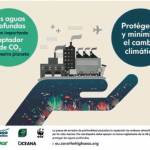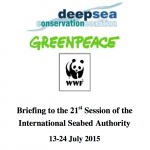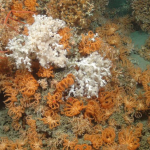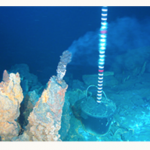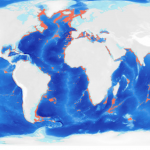Source: Scientific Reports
The expansion of fishing activities into deeper waters1 is unquestionably one of the principal threats to the world’s ocean health2. Most deep-sea fisheries are unsustainable not only for target species but also for non-target fauna and their habitats3. Unless some radical changes in governance and management are being made4, damages to deep-sea ecosystems will soon be irreversible. The United Nations have recognized this issue and has urged governments and Regional Fishery Management Organizations to assess the impact of deep-sea fisheries on Vulnerable Marine Ecosystems (VMEs), particularly on cold-water coral ecosystems5. To reach this goal, impact assessments of different types of deep-sea fishing gear and of specific fishery are urgently needed6.
Continue reading Deep-water longline fishing has reduced impact on Vulnerable Marine Ecosystems

